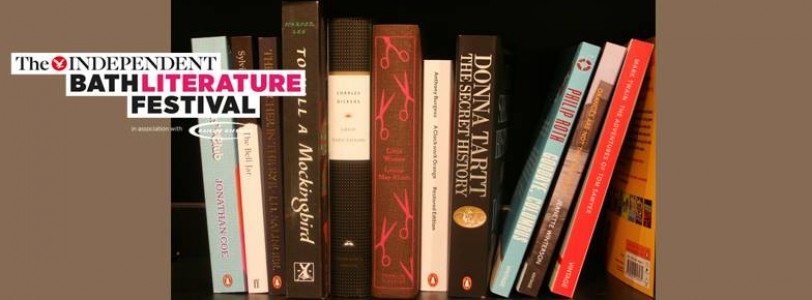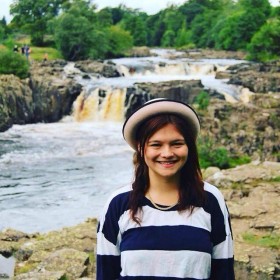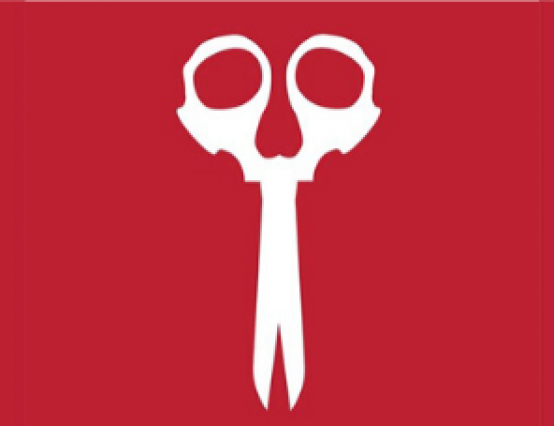To celebrate their 21st Birthday and their theme of Forever Young, Bath Literature Festival decided to explore the best 'coming of age' novels in a debate with festival director Viv Groskop, Observer writer Stephanie Merritt and arts and culture critic Mark Lawson.
The set up of this event was that a panel had narrowed down the choices to a list of 21, and the three critics were to explore this list, and some that didn't make it, to then choose their own favourites and make the case for them. From the short list of three the audience would then take their vote.
The first question then is what do we mean by a 'coming of age' novel? The key ideas seemed to be about some kind of relatable experience of growing up, which is a universal experience, even if it happens differently for everyone. The key age we were looking at seemed to focus on teenage years, though there was some question about the experience of going to university as being equivalent too.
Jane Eyre featured early in the discussion and the event nearly turned into 'confessions of a literary critic' when Lawson told us he had never read this. Merritt soon reveals that this is the book she will be backing, describing how the narrative progression, following Jane as she grows up is everything she wanted from this book when she was young.
They then turn to consider the seemingly most popular book from their research, The Catcher in the Rye. While I was expecting this to be one of the shortlisted choices, it was in fact the subject of a more controversial discussion with the suggestion that it can be dangerous and should perhaps come with a trigger warning because of the way it might encourage being self-indulgent or isolated from others. Rumbles from the audience I think suggested some real divisions in feeling on this subject, and while it was interesting to consider I was a little disappointed that there wasn't another more positive aspect to it which was explored.
Interestingly Salinger had expressed in his will that the book could never be adapted for the screen, and alongside Jane Eyre having recently been done by the National Theatre, this sparked a question about the importance of adaptation: is the ability to see or stream versions of these novels more important today? There was a unilateral yes to this, though it wasn't an issue that raised much concern, instead the panel saw it as the most likely way teenagers would now be introduced to these works.
The next big controversial question, in some ways related to this, was why Harry Potter wasn't on the list? At first Groskop made a reasonable but not wholly convincing case that as a series and as part of a different genre that it didn't really have a place. This is where things got really complicated because they seemed to be looking at 'coming of age' as its own genre, which isn't a typical categorisation, and the list itself spanned many different types of books. They explicitly talked about excluding Harry Potter because of the fantasy and it being a Young Adult (YA) novel, and I Know Why the Caged Bird Sings by Maya Angelou because it was a memoir, but a fantasy novel called The Gracekeepers was on the list, as was The Bell Jar by Sylvia Plath, which is just as autobiographical as Angelou's novel.
There was also an interesting discussion on To Kill a Mockingbird, Groskop's choice, with Lawson championing Go Set a Watchmen just as good, if not better because of how it is Scout reflecting as an adult. This was clearly a very personal issue as people have such strong feelings on the book.
When it came down to the vote, the short-listed three came to be:
To Kill a Mocking Bird by Harper Lee
Jane Eyre by Charlotte Bronte
Oranges Are Not the Only Fruit by Jeanette Winterson
While there was a fair number of votes for Jane Eyre, the overwhelming majority of the audience, me included went for To Kill a Mockingbird. Even though I did feel that the views, particularly on YA fiction, were coming from a much older generation and were maybe less relevant today, I did think it was an interesting and thought provoking discussion on what makes a good coming of age novel.
Image by Bath Festivals.









0 Comments